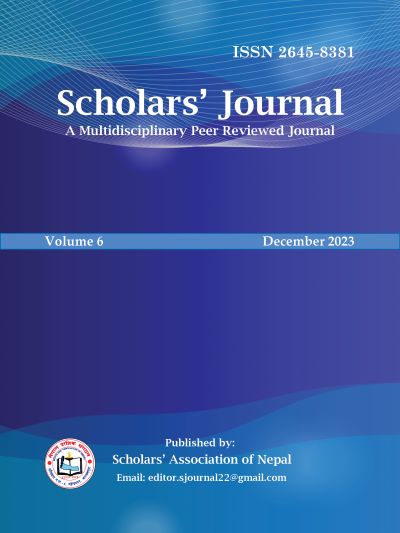The Exclusion of Dalits in Local Governance
DOI:
https://doi.org/10.3126/scholars.v6i1.69994Keywords:
sub-ordination, Dalits, local politics, participation, power relationsAbstract
In order to guarantee citizen participation in the decision-making stages of governance, the federal system of governance in Nepal distributes state authorities across the national and sub-nation al levels. From an equity perspective, local governance becomes even more fundamental when oppressed and marginalized people participate in decision-making. Examining the degree of Dalit subordination in local government decision-making is the article’s goal. In addition to critically analyzing relevant material pertaining to the research issue, the researcher employed a narrative approach to gather lived experiences of Dalits in local politics. It was discovered that Dalits are silenced at the local government decision-making levels. The elites (thulabada) in the settlements effectively explain and capture the needs of local developments, but Dalits remain unheard. The elected elites conduct the executive and topic committee meetings and consultations. Dalit elected members continue to yield to decisions that are supported by non-Dalits. Dalits are positioned at the bottom of the caste system by the dominant ideology that has permeated the community. As a result, Dalits are purposefully ignored by society, socio culturally disintegrated, and weak in politics. Dalits’ views are excluded from local government decisions and resources since they are not represented in executive positions within the local government. The community is divided along caste lines by the deeply ingrained psychology of the caste system.
Downloads
Downloads
Published
How to Cite
Issue
Section
License

This work is licensed under a Creative Commons Attribution-NonCommercial 4.0 International License.
Copyright © The Authors

